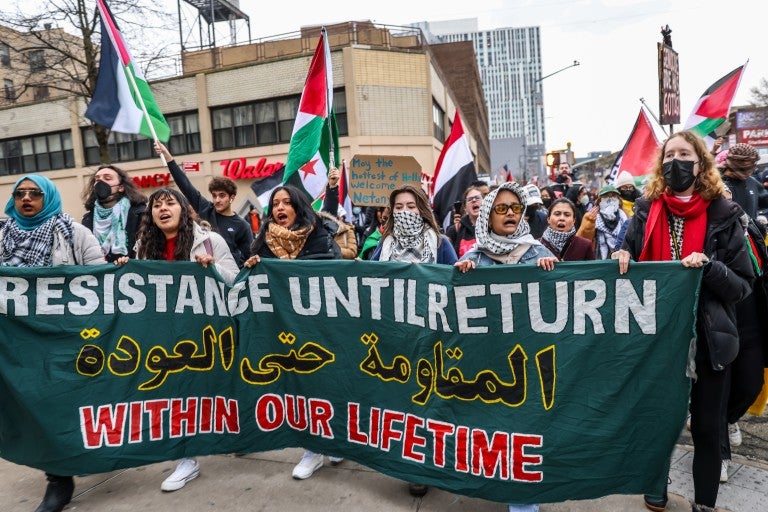March 22, 2017 — Atlanta, GA
Dov Wilker and Greg Averbuch, AJC Atlanta Regional Director and Regional President
Atlanta Business Chronicle
During the presentation of The Temple Bombing at the Alliance Theater, we were shocked at how eerily similar that 1958 crime was to present-day events. The play is based on the true story of the bombing of The Temple synagogue, still located today on Peachtree Street. This hate crime was perpetrated by white supremacists who were angry that the Jewish community supported the civil rights movement. The attackers sought to incite fear.
Six years later, Dr. Martin Luther King, Jr., won the Nobel Peace Prize. Unfortunately, in 1964 Atlanta, there was no plan to host an event honoring Dr. King, since a celebration of this sort would have required blacks and whites sit and celebrate together.
J. Paul Austin, then chairman of Coca-Cola, made sure that an integrated event did in fact take place to properly mark the occasion. According to former Mayor Andrew Young, Austin said: “It is embarrassing for Coca-Cola to be located in a city that refuses to honor its Nobel Prize winner. We are an international business. The Coca-Cola Company does not need Atlanta. You all have to decide whether Atlanta needs the Coca-Cola Company.” King was indeed honored at a racially mixed dinner, demonstrating how profoundly business leadership and leverage can transform a community.
Today, at a time of daily bomb threats and heightened antisemitic hate, Atlanta business leaders should follow J. Paul Austin’s lead and speak up. We all have a vested interest in how Atlanta is perceived by those who seek to do business here, and hire, relocate, and motivate Atlanta-based employees. At last count, 68 foreign governments are vying to do business here. If Atlanta wants to maintain its reputation as “the city too busy to hate,” we need to emphasize that stance and reinforce our open and welcoming southern hospitality.
Each time there is a bomb threat or hate crime, the world watches and notes our reaction. Indeed, our collective response is crucial. Such incidents not only affect the targeted Jewish community, but also the greater Atlanta business community’s ability to attract, inspire, and maintain top international talent. Any manifestations that suggest lawlessness, heighten anxiety, or reduce productivity have negative implications—to put it another way, Antisemitism and other hate crimes are bad for business.
Without question, we need a united voice to counter these “message” crimes. Recently, a grassroots effort was launched in response. The Atlanta Initiative Against Antisemitism (AIAAS), of which American Jewish Committee is a co-sponsor, brings together more than 150 of Atlanta’s religious, civic, and business leaders to discuss how to address local issues of hate. Creating dialogue among diverse groups—African-Americans, Latinos, Indians, Catholics, Muslims, Protestants, and law-enforcement personnel—about antisemitism, cooperatively and strongly responds to hate crime; The AIAAS sends a clear message to the world that there is power in numbers and that our Jewish minority does not face the hatemongers alone.
Senators Isakson and Perdue recently signed a letter urging national leaders such as Homeland Security Secretary Kelly, Attorney General Sessions, and FBI Director Comey to assist Atlanta and Georgia law enforcement in protecting Jewish community centers, schools, and synagogues. The letter also insists on vigorous prosecution of those who threaten or vandalize these institutions. In addition, the “Mayors United Against Antisemitism” initiative, also organized by American Jewish Committee, includes the signatures of more than 10 Atlanta-area mayors and 570 mayors worldwide.
Together, our local business, civic, and political leadership have spearheaded initiatives such as Welcoming Atlanta, the Atlanta Jewish Film Festival, the National Black Arts Festival, the Peachtree Road Race, the Georgia Aquarium, and the National Center for Civil and Human Rights in order to create civic unity and to attract and welcome newcomers. Each of these endeavors, frequented by diverse local, national, and international communities, complements the vital leading role our business community plays, intertwining the fabric of our city life with religion, arts, culture, education, trade, and commerce.
Following J. Paul Austin’s lead, Atlanta’s corporate leadership has long provided strong financial support to local organizations that encourage and sponsor bridge-building and dialogue, community support and collaboration. Our businesspeople, understand that community engagement makes Atlanta “good for business,” have put this world-class city on the international business map.
Today, we are at a pivotal moment that requires Atlanta’s collective business voice to speak loudly against hate. We need to empower all Atlantans by showing support for any threatened community, whether Jewish or not. Our history of strong, principled leadership is more significant than ever. The health of our business community and local economy depends on it.


